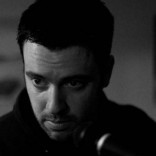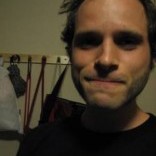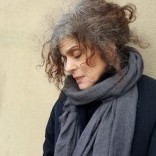The Widow’s Daughter
Scott Sikes
On a grass covered hill in the very center of an unused pasture that slopes down to the spot where Coal Creek mixes into Chestnut Creek stands a house, or what remains of a house. It is a shell of emptiness shut up from the world, containing only breathed air that never had chance to escape. It was built in 1919, and it stands to this day as solid as the sky that surrounds it. If it moans in the wind or cracks and pops as it settles, no one is close enough to hear. It stands as it did on the day that George Williams, the man who built it, last turned the heavy lock on the front door and slipped the key into the pocket of his pants and walked through that field and up Coal Creek to his sister’s house. He did not look back.
George Williams and his twin sister, Pearl, had been lonely children, born to a mother and father who had prayed long and hard for a child and who had grown tired and bitter with disappointment. Their parents had been childless so long that if we hadn’t watched Mrs. Williams’ growing belly for those months, we might have believed their birth to be in the same order as a miracle. For them, it was a sign. It was proof enough in the end that their faith had been steadfast and strong. Still, they had many fears of the world that made them skittish and afraid for their children. They kept them close to the house and they kept them busy. There were no friendships with the neighbors and when the time came for them to start school, George and Pearl stayed home. Such a thing was not uncommon then and, if we thought of it at all, we thought it no one’s business but their own.
Brother and sister were like mirrors of one another and they only looked more alike the older they got. They were both ribby and lean and stunted and they walked around with hunched up shoulders that made their heads ride out in front of their bodies like turtles. Pearl’s hair was cut just as a boy’s would be and she wore faded jeans and flannel work shirts, tucked in and cinched tight about her scrawny waist, same as George. They came and went always together, looking down at their shuffling feet and paying no mind at all to the wide world. We watched out for them, but kept our distance. If they wanted anything at the store, it was handed over without a word. George’s lower lip pouted out from his face as he simply pointed at the wares they needed, offering only a soft grunt. For a world as small as ours that kept no secrets, the space we offered them was generous and protective. We hardly knew what to make of them anyhow.
When they were fourteen years old, their mother died, their father hardly a year later. It was arranged then for George and Pearl to stay in the little house that had always been their home. It alone was the sum birthright their old mother and father could leave behind when they departed this world. Brother and sister made do with their garden and George gave his labor to small jobs while Pearl took in wash and mending. What bills they had were paid on time. The two of them slipped slowly into the background of our everyday, their oddness mostly ignored or only whispered about from time to time. Politely and with gracious good manners, of course.
George, inching through the world with a humming, deliberate patience, came in his adulthood to be skilled as a carpenter. In those days, we called people like him touched or simple-minded, but George turned that opinion on its head in due course. He may have had no formal schooling in such things as arithmetic and geometry, but his swollen-lipped and empty-eyed smile hid from us a kind of thinking that served a man well. He learned, maybe not quickly, but soon enough, to measure and to cut, to join and to plane, to hammer and to screw with neatness and precision. His hands were steady and stout. He could cipher the roof of a barn to the inch. He could square the frame of a shed true as the Word of God. And the chairs and cabinets he made are today heirlooms passed through families and bid up at auctions even still. The opinions about the quality of his craftsmanship began first as rumors until by years they unwound themselves through and around the community and became a part of what we told about ourselves with pride. His work was sought after and demanded.
George always was a smallish man, a bit bowed even, but the work he did pulled him a fair bit further upright. He came to have a stoutness to him. Firm muscles bulged against his shirt. Pearl, though, grew more frail and brittle, like she was shrinking into herself. She left their place only on Sundays for church, escorted to the front door up one plodding step at a time on the arm of her more solid sibling and then sat weaving as if in a breeze in the corner of their pew in the third row from the back. Communion was served to her there and not at the chancel rail. What sort of existence the two of them cultivated together in their peculiar partnership, we could only guess at. Questions may have been raised in more salacious minds about the possibility of certain irregular intimacies in their household, but by the most of us such things were never spoken of. We are a Christian people after all.
~
The widow Jackson had come raging into our county and bearing down like mad fury, every curve and hole in the road loosening the nails of the wagon she drove. It bore the weight of a sparse life lately ripped asunder by the untimely death of her husband who had been a foreman in the mines over at Austinville and whose demise may or may not have been an accident. Her six young boys ran barefoot alongside, doing their best to keep up, while her only daughter, Isabelle, held tight to the bench beside her. The widow’s jaw even then was fixed as hard against her face as it was for as long as we knew her. There was a look of madness drilling out from that woman’s eyes. Wispy flames of hair white as the moon flailed away from the bun on her head, trailing a face older than its time and spotted by dark flecks of the snuff she kept packed in her upper lip throughout the day.
Her husband’s life had been worth enough money to buy her three hundred acres on Meadow Creek and there she set to work building her own kingdom in that corner of the county. It happened before anyone noticed that hers had become one of the largest dairy outfits around and, while propriety and custom kept her officially out of the seats of local government and law-making, her hand wanted not for power and influence over those who cast about for the support of the electorate. She single-handedly financed the building of the Meadow Creek Methodist Church and her tithe went far in supporting the preacher who circuited through each month. No one ever called her a godly woman, but she kept the Sabbath and expected the same of all others. She could be fearsome and she had no patience for her children. They shuddered in her shadow and dreaded the anger that would cut loose her tongue and set it to lashing about with such wrath that it sometimes sent her dentures flying forth amongst a blast of curses and condemnation. She damned them each to hell on a regular basis. They could follow their daddy there for all she cared. It was her practice to always keep a good willow switch in one hand or at least near enough to reach, lest they forget for even a moment who was in charge. They were not the only ones to live in fear of her.
The widow’s daughter, Isabelle, was never a beauty, but there was a grace to her. She had the same way of carrying herself like a good horse does. She was a plain girl from the beginning and she wasn’t an especially joyful kind. In a world where few of us smiled besides, she stood apart for the abundant concentration she wore as countenance most all the time. But you couldn’t find a more sensible type, even in the face of her mother’s wild rages and plain meanness. If the widow plowed that household forward to prominence and prosperity, her daughter kept it steady and straight down the row. It was Isabelle who watched over her brothers and gave them their daily care, while the widow fumed and fussed about. It seems that in full spite of their mother, those children all turned out to be wholly good and decent people, the kind you hope to walk among all your days. Maybe it is suffering that begets such uprightness, because if anyone had to stand solid in the blazes of that woman’s expectations, it was Isabelle Jackson.
~
It came to be a few years later that the widow hired George Williams out for a good amount of regular work. She was a woman who could not offer a compliment, but she respected good hard labor and she let it be known. For the widow, work was a noble thing. It was really all she ever knew. And, in George she found a man keen on taking orders. It steadied his soul to have a plan laid out for him, a thing to set his mind upon and to get done. Tell him what was needed doing and he got about it with hardly a question and without a grievance uttered. He was dependable that way, as sure as the sun in the morning. Their two minds fit together, the one wild and unbitted, the other dull and ponderous. It was a match of industry each had not known it wanted for.
By now, the widow’s daughter, in the opinions of some among us, was far beyond the time when she should have left her mother’s house and assumed charge of her own. The oldest boy, Joshua, was now married himself and part of the work George had been hired to do was spurred by the need to make the Jackson place accommodating enough for a larger family. Imagine being a daughter-in-law in the widow’s house. There was hardly room to make your own way; you had to elbow yourself into your daily living. Isabelle, though, was resigned to her place in that world. What might have stirred inside her, the kinds of things a young woman might think about, we can only suppose she kept tamped down inside somehow. Besides, her mother had hold of that girl like a sprung trap. There was not a choice for Isabelle to be anything other than chaste, and no man with any bit of sense about him notioned to call upon that house. She found herself in a lonely fix.
The particulars of how the widow’s daughter and George Williams first came to take notice of one another is known only to them, of course. Can we ever really know how two people come to see in each other the scattered pieces of their lives that they have yet to find elsewhere along the way? Some of us like to imagine it was a thing that startled them both. Maybe the widow’s daughter, rushing about her chores, turned a corner of the house and ran smack into George Williams as he came from the other direction. Maybe George, slipping around back of the barn to relieve himself, was surprised to look up and find Isabelle headed just then up the path from the potato patch. There might have been a hot summer day when she thought to offer George a dipper full of spring water and their eyes had chance to meet, a thing passing between them that each understood clearly and right away. It is hard to say. Between those two, conversation would have been lacking. But some of the things we feel the most are never said out loud. Think, too, of the way George could smile. It had its charm. As has been told, George Williams, innocent as he was in most of the goings-on of the world, in a lot of ways showed as all man to a body cued to notice. A young woman stifling a certain yearning might have found that hard to ignore, even allowing for her otherwise sensible head.
Lust, though, was but one piece of the ties that bound these two together. The threads were knotted tighter between them because of a thing more considerable than mere physical need. That is for certain. We know this because of what George Williams did when he came to understand that he loved Isabelle Jackson and wanted her for his wife.
He started slow. Time was not a thing he paid much attention to. He knew it to be a force outside himself that could not be stopped anyhow, which is not to say that he tarried about this particular business. George Williams rushed no job. And this one, he knew from the beginning, would be his masterwork, like a monument to all his years of gathering skill.
He had been hoarding away cash in a crock in the corner of the springhouse for years. He hardly thought of it. With that money he soon got hold of a piece of land just down the creek from the home he had known his entire life. He had been laboring for years by then with nary a debt to anyone and money ignored has a way of piling up over such a time. The man he bought it off of, Charlie McKnight, was as about as neighborly as a nest of hornets and the pasture itself was stuck well back on the far side of Colby Knob. The only way anybody got to it then was by the way George went. He walked in along the creek.
Because of where it was, George was able to go about his work in the way he liked best, without notice or bother. By the time word got around that he was building a house, he had it already under roof. It was not a grand thing. It was not meant to be. It was square, four rooms on either side of a wide hallway that led to the kitchen on the back, a loft above. But the seams were tight, the corners joined perfectly, the nails driven straight and true, all the things put just as they should be that you don’t notice right away but that make a house sturdy and strong.
Looking up at it now, you can see, too, that it was not only what he put there that George was thinking of, but where he put it. If you know what you’re seeing, you can’t help but understand the care he took. The house is within easy walking of what we call lasting water. It stands on a westward slope, catching the most of the sun during the day. Below it runs those two creeks, clear and cold, through bottomland black with rich, loamy dirt. George chose a place to make a life, one that would take hold.
It is astounding how long a secret can be known only by two people if it is powerful enough to the both of them. George’s true reason for building that house never crossed our minds. We puzzled over it, sure, but in the end it seemed he had finally found the gumption to strike off from his sister, weary of hearing her snores every night perhaps or just now figuring the strangeness of their situation and eager to amend it. We were glad for him.
The widow could not have suspected anything at play against her while George was building his house. She didn’t take to thinking over such things. Like anything else with George, she paid it no mind as long as he did what she asked. She was a serious woman who acted on instinct and without mercy. Running up against her was like hearing a rattler buzzing at your feet. By then, it’s probably too late. Anger was just not a thing she kept hidden. If she had had one whiff in all that time that there was anything between George and Isabelle, it would have ended then and there.
When she found out that her daughter was expecting a child, though, the gnashing rage that overtook her was not a thing to be contained. It was fed not only by the shame that Isabelle had brought upon that fair and upstanding household, but by the sudden realization of what had been going on right under her very nose. She thought her own mind cleverer than most others, and here’s this slow-witted man of such low stock spreading his seed among her own. For she needed but a trifling moment to figure out who the father of that child had to be. She added up quick the things she had missed; mostly that George was the only man about the place that was not a brother to Isabelle. She knew then what had been pulled on her and that abrupt understanding was enough to make her seethe with a hot, hating anger. She brought down a kind of wrath born of the Devil, and Isabelle bore every bit of it in blood. The widow must have thought she could beat the child out of the poor girl’s womb. The brothers only brought themselves to intervene when their mother was soaked in sweat and exhausted, nearly to the point of stopping herself. Even then, only Joshua, the oldest, had the gall to step between them. Before the next noon, before the lashed wounds all over Isabelle’s body had chance to scab, the widow’s plans had been settled to ship her daughter off to a place where, if the shame could not be drawn out, it could at least be hidden.
Joshua walked for the rest of his life as if he carried a heaving burden of regret upon his shoulders. He was a prosperous man, with plenty of land and children, and we always thought of him as the kind of upright person his mother could only suppose she was. She may have been infamous, but he was beloved and respected. He lived to be an old age, a passel of grandchildren crawling about his feet. But it was not a regret for having stood by while his mother beat his sister so savagely that lay upon him all his days. It was instead a sadness attached at a deep within place. It was a kind of evil that latched itself upon him the minute he walked into the barn just at first light on the morning Isabelle was to be sent off. He was the one to find her hanging there, the noosed rope creaking against the rafter as the weight of her body pulled so lightly down, swaying its cold stiffness in the early breeze coming in from the drive.
For the rest of his days, George Williams was like a ghost in his own memory. He became even more of a stranger to us. After shutting up the house he had built, he visited it no more. He left it to watch over the remains of all he had lost. To think that such a place, so finely made, never saw life inside itself, never held within it echoes of human voices, never bore scuffmarks on its floors or marks along its walls, never sweat with the breathed hopes of the living. It is haunted only by silences. The house stands there now to remember a lifetime that was stolen before it was hardly imagined. It stands in memory of the widow’s daughter.







